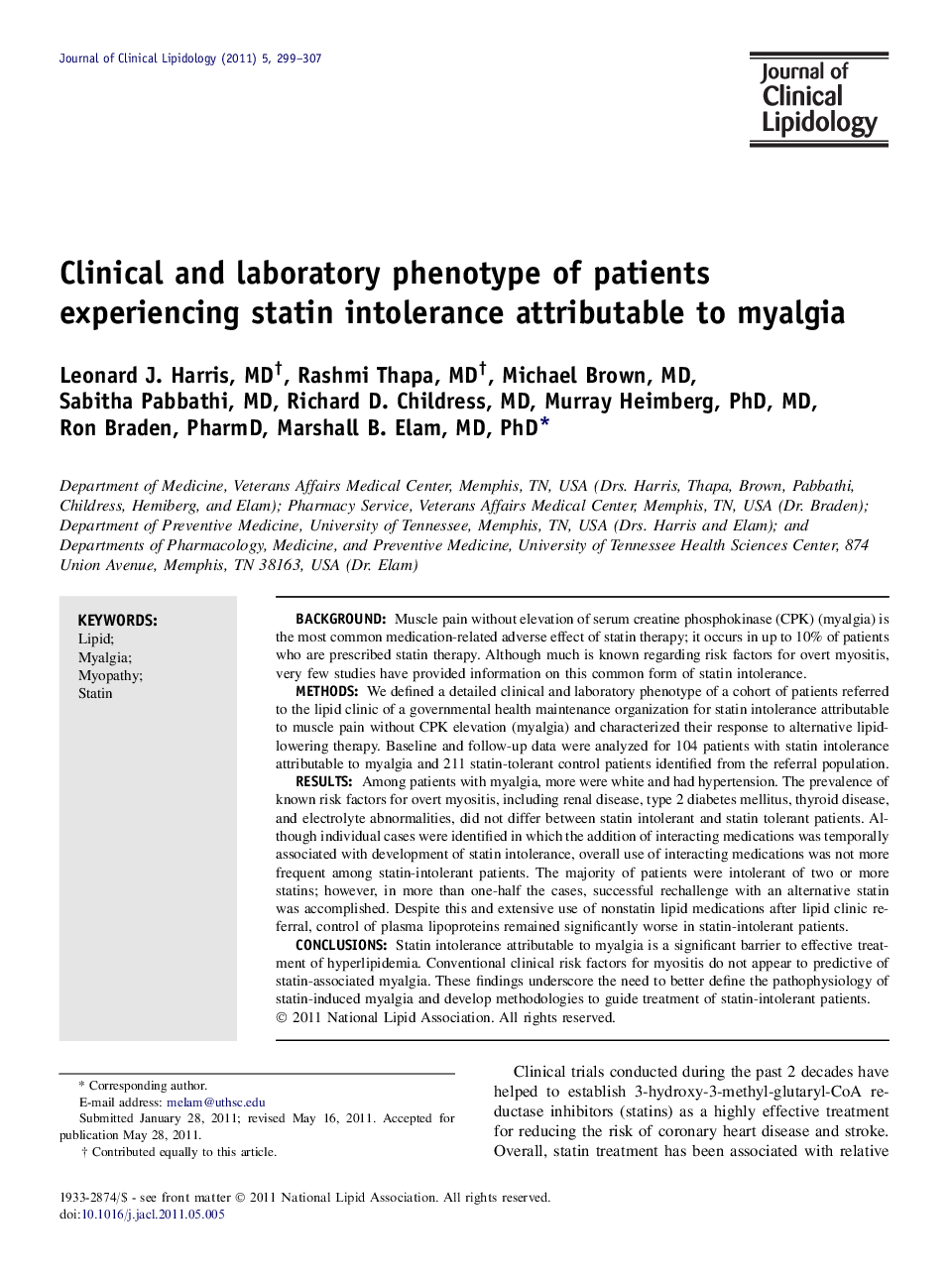| Article ID | Journal | Published Year | Pages | File Type |
|---|---|---|---|---|
| 2966297 | Journal of Clinical Lipidology | 2011 | 9 Pages |
BackgroundMuscle pain without elevation of serum creatine phosphokinase (CPK) (myalgia) is the most common medication-related adverse effect of statin therapy; it occurs in up to 10% of patients who are prescribed statin therapy. Although much is known regarding risk factors for overt myositis, very few studies have provided information on this common form of statin intolerance.MethodsWe defined a detailed clinical and laboratory phenotype of a cohort of patients referred to the lipid clinic of a governmental health maintenance organization for statin intolerance attributable to muscle pain without CPK elevation (myalgia) and characterized their response to alternative lipid-lowering therapy. Baseline and follow-up data were analyzed for 104 patients with statin intolerance attributable to myalgia and 211 statin-tolerant control patients identified from the referral population.ResultsAmong patients with myalgia, more were white and had hypertension. The prevalence of known risk factors for overt myositis, including renal disease, type 2 diabetes mellitus, thyroid disease, and electrolyte abnormalities, did not differ between statin intolerant and statin tolerant patients. Although individual cases were identified in which the addition of interacting medications was temporally associated with development of statin intolerance, overall use of interacting medications was not more frequent among statin-intolerant patients. The majority of patients were intolerant of two or more statins; however, in more than one-half the cases, successful rechallenge with an alternative statin was accomplished. Despite this and extensive use of nonstatin lipid medications after lipid clinic referral, control of plasma lipoproteins remained significantly worse in statin-intolerant patients.ConclusionsStatin intolerance attributable to myalgia is a significant barrier to effective treatment of hyperlipidemia. Conventional clinical risk factors for myositis do not appear to predictive of statin-associated myalgia. These findings underscore the need to better define the pathophysiology of statin-induced myalgia and develop methodologies to guide treatment of statin-intolerant patients.
